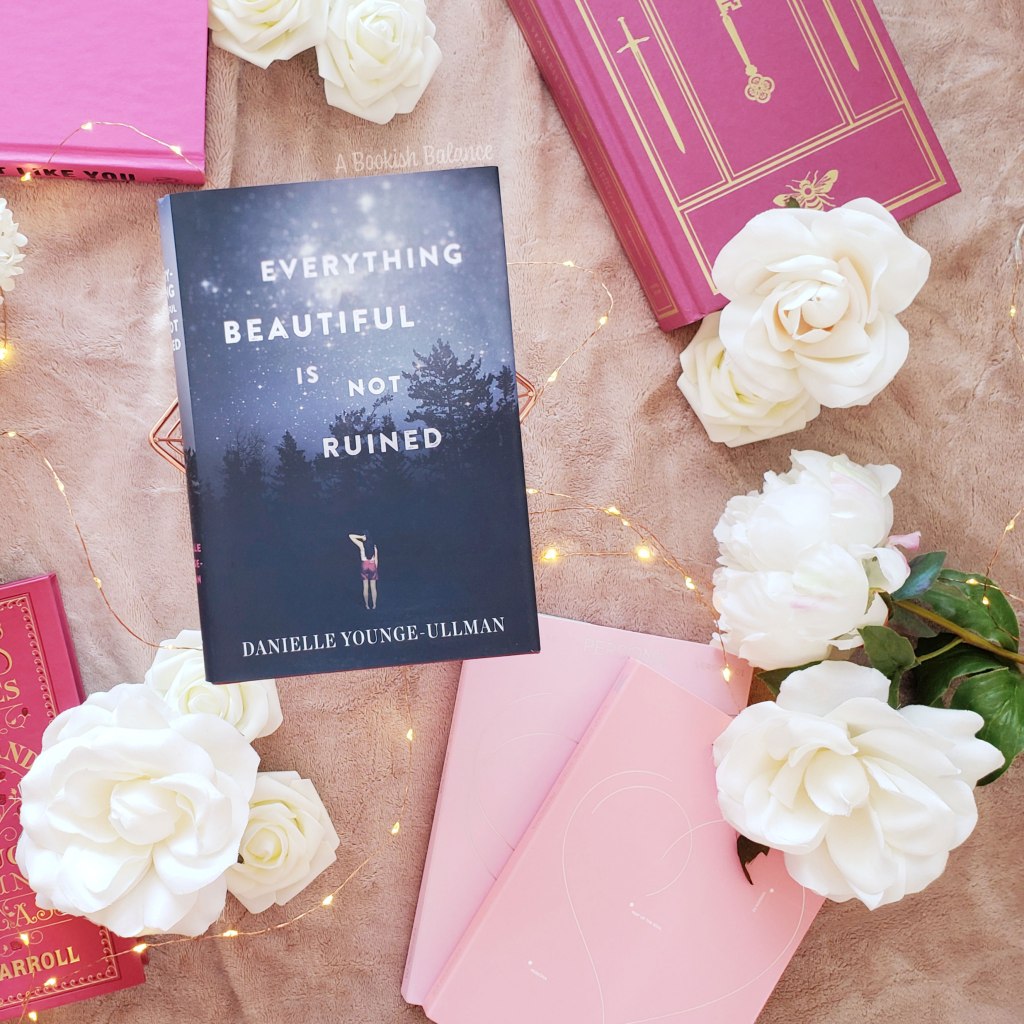
Title: Everything Beautiful is Not Ruined
Author: Danielle Younge-Ullman
Date Published: February 21, 2017
Rating: 4.5/5 stars
Date read: November 2, 2020 (reread)
Everything Beautiful is Not Ruined follows an aspiring singer named Ingrid, who gets permission from her former opera singer mother to pursue music on the condition that she attend a wilderness survival camp for at-risk teenagers. The story is told through multiple timelines, following Ingrid’s time at camp, her budding friendship with a boy named Isaac, and the loss of her mother’s singing voice.
Younge-Ullman’s writing alone is enough to bring me to read a novel. She’s fantastic at writing both witty dialogue and snarky, sarcastic characters, two elements I love having in any book I read. That her words so effectively portray and carry emotion is also a huge plus, and I often find her protagonists’ way of thinking incredibly relatable. I also love the imagery she uses, it often has me imaging myself in the scene.
In regards to themes, the novel’s most prominent one is grief. Ingrid has a lot of complicated feelings towards the most important relationship in her life, and a lot of emotions she bottles up. Over the course of the novel we unpack these feelings with her and see how holding in emotions can be harmful. As someone who’s always had a hard time discussing my own feelings, I could really relate to Ingrid’s struggle. Seeing Ingrid coming to terms with her issues was really emotionally impactful, but I also appreciated that there were no grand solutions for Ingrid’s problems.
To speak of the present timeline, I’m not a fan of the wilderness so I find it quite interesting that I don’t mind reading this type of setting. Ingrid’s temperament and attitudes towards wilderness were similar to my own, so I had no difficulties empathizing with her struggle to adapt to camp life. I also liked that Ingrid wasn’t quick to form lasting relationships, and that she was a more introspective and introverted character. It feels more genuine that the group members of her camp ended up forming cliques, but also that they were slowly able to open up to one another over time. But while I enjoyed the present day timeline, and thought it did well to unpack Ingrid’s feelings, my favourite aspect of the novel was the flashbacks that centred on Ingrid and her parents. Her relationship with Andreas was so sweet and a most needed comfort during the difficult periods of her life. As for Ingrid’s mother, through the flashbacks we were really able to see the full picture in regards to Margot-Sophia’s character, and while I would rather not comment on Margot-Sophia’s actions, I did understand where she was coming from. Because Ingrid, Andreas, and Margot-Sophia’s characters were so well fleshed out, the different relationships between the three were layered and complex, and ended up being the most memorable aspect of the novel.
Lastly, the negatives. I had this complaint the first time I read Everything Beautiful is Not Ruined and I also have it about He Must Like You and it’s that I have a hard time connecting to Younge-Ullman’s romances. While I liked the dynamic Ingrid had with Tavik, especially their chemistry, I wasn’t as big a supporter of her relationship with Isaac. I’m beginning to think it’s because I don’t get along particularly well with the personalities of Younge-Ullman’s love interests, which really is just a personal preference. That’s not to say that I think the romance was bad, just that if I’m going to root for a romance I have a preference for liking those involved.
CW: suicide, sexual assault, depression
Have you read Everything Beautiful Is Not Ruined? If not, do you plan to? I’d love to hear your thoughts! Happy reading! 💗

this is such a detailed review, LOVE IT!
LikeLiked by 2 people
Thank you! 💗💗
LikeLiked by 2 people